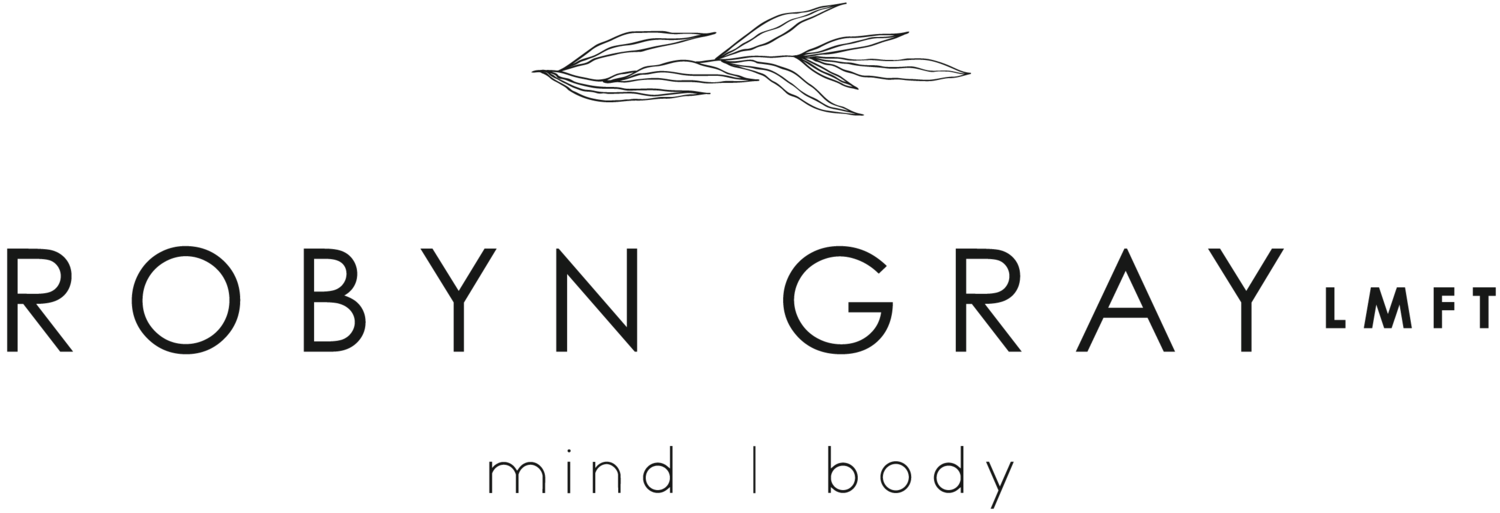
“If it’s not a hell yes, then it’s a no.” My thoughts on this message as a psychotherapist
“If it's not a hell yes, then it's a no.”
Read here to find out my thoughts on this mantra both personally and as a psychotherapist.

What is Brainspotting Therapy? How does Brainspotting work?
If you’ve been in talk therapy and are frustrated with your process, Brainspotting might be right for you. Brainspotting is effective treatment for trauma, anxiety, depression, grief and anger.

How meditation can help you with burnout
Many physicians, therapists, counselors and coaches are recommending meditation to help decrease stress, anxiety and depression and gain a sense of peace, resolve and ease.
But what’s with all the hype? What does meditation actually do and how does meditation actually work? Is there science backing it up or is it just “woo-woo” stuff?
Read this blog to learn more about the point of meditation, what it does to your brain and the science behind how it can help relieve your state of overwhelm and help with burnout.

Feeling lonely? 6 Ways to help when you’re feeling lonely
Feeling lonely? Loneliness is a human condition that everyone will experience at some point in their life. And, there are ways to help yourself when feeling lonely. Here are 6 things to do right now to help when you are feeling lonely.

What is trauma therapy? How does trauma therapy work?
What is trauma and how can I get help? There is help with trauma-informed therapy. You’re in the right place to learn more about how to get help if you have trauma.

How to tame your monkey mind
“Monkey Mind” is from Buddhist principles and is a term that refers to being unsettled, restless, or confused.
The average human has about 70,000 thoughts per day, which breaks down to about 48 per minute! No wonder “monkey mind” is a phrase.
You can learn to quiet the mind, even with your most difficult types of thought patterns.

How to connect with yourself and why you need to for your health
Our modern world is filled with distractions. The demands of day-to-day life, the pressure of keeping up with the fast pace of society, and the constant bombardment from media keep us in a constant state of stimulation. This “go go go” mindset can make you lose touch with who yourself. When we’re constantly hustling and comparing ourselves to (unattainable) standards, we deny ourselves and our needs. But there’s good news--you don’t have to keep feeling this way.

How to be mindful without having to meditate
If you find yourself flying through the days, weeks and months it might be a sign that you are going through to motions of life, and not really being present. I am certainly guilty of this, especially during 2020 and the pandemic - I was in survival mode and found myself feeling like each day was just rolling into the next.
The good news is we can break out of this cycle and move out of default mode.

How to calm the nervous system
When we feel this way, people may say something like “My nerves are shot.” There is actually a biological connection between our nerves (or nervous system) and our feelings of overwhelm. The good news is that we can control parts of our nervous system, bringing us from a state of anxiety into a place of calm.


Mind body exercises
By connecting our minds and bodies, we unlock opportunities to enhance our physical and mental wellbeing through the process of integration. The following exercises combine mental focus and some form of body involvement, such as movements or breathing (or both!)


Inner Child Meditations
Inner child healing meditations help us connect with our younger parts of self and notice how they play out in our daily lives. As a therapist, yoga instructor, and meditation creator, I've put together a series of meditations that help you understand and routinely check in with your inner child.

8 Tips to help manage your anxiety
In order to manage our anxiety, we need to understand the connection between our minds and bodies and the physiological response that anxiety elicits.
Our nervous system’s job is to keep us safe so that we can continue to live. It does this by constantly accessing our environments and interactions with others to see if we are safe or threatened and then communicates this assessment to our brain. All of this happens in less than a second after we’re exposed to a situation.

Healing for your Inner-Child
“I feel like a 12 year old again”, “It was like I was having a tantrum”, and “I knew my reaction was bigger than the trigger, but I couldn’t stop myself!”. Sound familiar to you? This might be an inner-child wound coming up in real time. Read on to learn how to help provide healing moments for your inner-child.

How to stop judging yourself
If we get stuck in the cycle of judging ourselves and then paralyzed with shame, it becomes more difficult to break free from these reactive patterns and ultimately, heal the deeper parts of us that are more than likely contributing to some, if not the majority, of these reactive patterns.

How to sleep better. Tips for optimal rest.
Suffering from sleep issues is no joke; it can negatively affect one's mental, emotional and physical health. And ... you are not alone, research shows that over 68% of Americans struggle with some kind of sleep issue. Personally, I think that might be underreported based on how often this topic is brought up with clients, friends and family.

How to be more present and in the moment
Do you ever find yourself going from experience to experience without actually settling in when you arrive? Just going through the motions but never really being present in the experience or feeling like you are in a race to complete your day?

Mind body connection. How to use your body to help shift your mindset.
Our felt sense is so incredibly powerful to our healing and growth. Insight and reflection can help, of course, but the bodies experience of our reflections and insight are key to integration and re-wiring the brain and nervous system.

How to work with your inner critic and break out of the cycle of shame.
We all have one, the infamous Inner Critic. I have learned that by pushing it away we simply make it stronger and sometimes even end up in a mental war between the inner critic thoughts and the part of us trying to convince ourselves otherwise.
